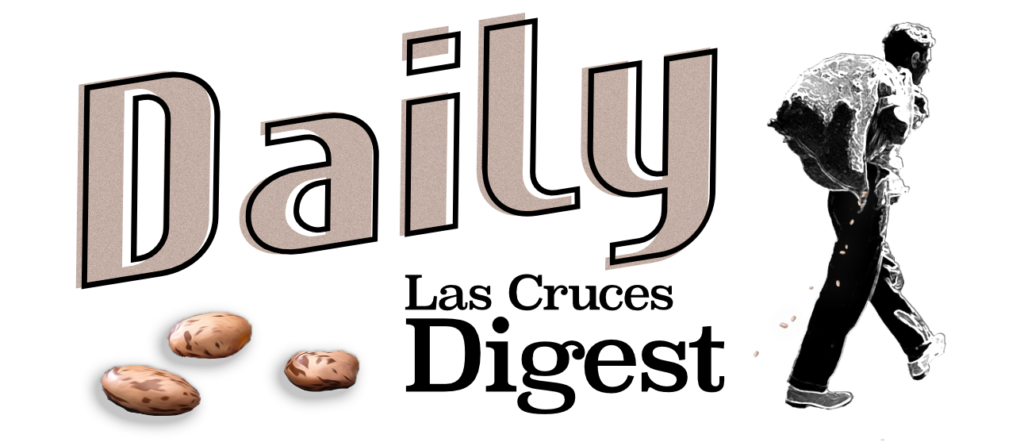One day, a long time ago, an old Miller and his Son were on their way to market with a Donkey which they hoped to sell. They drove him very slowly, for they thought they would have a better chance to sell him if they kept him in good condition. As they walked along the highway some travelers laughed loudly at them.

At the outset, I wish to state clearly: If anyone is to be associated with the donkey, it is me. This past January I decided to create a news platform for our local community. I recognized shortcomings in available local news, and challenged myself to create something better. I initially hoped to create a platform outside of social media. I admit freely that this is a foolhardy endeavor, and I am a donkey for believing I might be able to pull it off. Despite the recent decision to expand to Facebook, I remain foolhardy in my belief that such an endeavor is worthwhile, and ask you, the reader, to have patience as I attempt to create a local news platform worthy of your time.
This editorial is in response to the following comment posted on Facebook: “Why do all of the replies by Las Cruces Digest sound like they were written by ChatGPT?”
This comment is not the first time a similarity has been noted between my writing style and text produced by “bots”. In my defense, I wrote like this when “Eliza” (one of the original “chatbots”) was an Applesoft BASIC program loaded from a floppy disk.
There is good reason to be skeptical of comments on Facebook. I, personally, eschewed Facebook in 2016. I recently returned to expand the audience of Las Cruces Digest. As I explored the options available to publishers, I was presented with the opportunity to train a Facebook chatbot to respond to messages received in Facebook Messenger. It is not a crazy idea to perceive post comments to be AI-generated, as well. The technology exists.
In computer science there exists something called the Turing Test (a.k.a. “the imitation game”). From Wikipedia: “[The imitation game] is a test of a machine’s ability to exhibit intelligent behaviour [sic] equivalent to, or indistinguishable from, that of a human being.” In brief, the test involves an interrogator who poses the same question to both a human and a “bot”. The responses are then evaluated by the interrogator to determine if the bot’s response can be distinguished from the human’s.
There is a “reverse Turing Test”; however, this involves the human attempting to imitate the conversational styles (and shortcomings) of a traditional bot. The question posed in the Facebook comment, above, demonstrates how woefully ineffective the “reverse Turing Test” has become. What happens when a bot’s writing style ceases to become an example of non-conformity, and becomes the standard to which human writers aspire?
I have studied and worked for much of my life to write how I do. I try to use precise language. I am ultimately responsible for the words I write, which is why I make every effort to be precise. I am not, however, responsible for how a reader chooses to interpret what I write. Some comments posted are simply off-the-cuff remarks having nothing to do with the subject matter, but are easily recognizable as being human because they are flawed in a uniquely human way. They are marked by a tinge of spite and competitiveness, thinly veiled, but easily recognizable as human.
As editor of the Las Cruces Digest, I cannot attempt to match the humanity evident in these negative posts–even in an attempt to produce a “reverse Turing Test” result. To do so would be to accept the rancor that has infected social media and society. I refuse to believe the positive natures of humanity have been completely eviscerated, despite every attempt to crowd out the simple, positive reports about the comings and goings of our broader community. Still, I persist.
This editorial is a very long answer to a short question. If you have read this far, please accept my gratitude. I hope it has answered the question posed, and given insight into my humanity. Mostly, I hope you are better off for spending your time here. If you are not, please accept my apologies, and know that there is always tomorrow–when I will be writing and responding this way, again.
How to Read Negative Facebook Comments:
An observation
If you try to please all, any critical statement directed to you personally can feel negative. Sometimes, posts are merely critical observations–and are often accurate.
This post was written by Levi Gwaltney, Editor, Las Cruces Digest. The opinions expressed here directly reflect and represent the editorial position of this website. (Image of Alan Touring Courtesy Wikimedia Commons–AI Generated, Public Domain)
And, now, back to our story…
“What foolishness,” cried one, “to walk when they might as well ride. The most stupid of the three is not the one you would expect it to be.”
The Miller did not like to be laughed at, so he told his son to climb up and ride.
They had gone a little farther along the road, when three merchants passed by.
“Oho, what have we here?” they cried. “Respect old age, young man! Get down, and let the old man ride.”
Though the Miller was not tired, he made the boy get down and climbed up himself to ride, just to please the Merchants.
At the next turnstile they overtook some women carrying market baskets loaded with vegetables and other things to sell.
“Look at the old fool,” exclaimed one of them. “Perched on the Donkey, while that poor boy has to walk.”
The Miller felt a bit vexed, but to be agreeable he told the Boy to climb up behind him.
They had no sooner started out again than a loud shout went up from another company of people on the road.
“What a crime,” cried one, “to load up a poor dumb beast like that! They look more able to carry the poor creature, than he to carry them.”
“They must be on their way to sell the poor thing’s hide,” said another.
The Miller and his Son quickly scrambled down, and a short time later, the market place was thrown into an uproar as the two came along carrying the Donkey slung from a pole. A great crowd of people ran out to get a closer look at the strange sight.
The Donkey did not dislike being carried, but so many people came up to point at him and laugh and shout, that he began to kick and bray, and then, just as they were crossing a bridge, the ropes that held him gave way, and down he tumbled into the river.
The poor Miller now set out sadly for home. By trying to please everybody, he had pleased nobody, and lost his Donkey besides.
If you try to please all, you please none.
~Aesop






